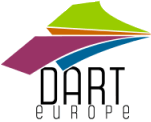Mostrar el registro sencillo del ítem
El enfoque de género en la intervención socioeducativa con mujeres: un estudio en el medio penitenciario Español
| dc.contributor.author | Burgos Jiménez, Rubén | |
| dc.contributor.author | García-Tardón, Bruno | |
| dc.contributor.author | Martín Solbes, Víctor | |
| dc.contributor.author | Pozuelo Rubio, Florencia | |
| dc.date.accessioned | 2024-02-06T16:16:56Z | |
| dc.date.available | 2024-02-06T16:16:56Z | |
| dc.date.issued | 2021 | |
| dc.identifier.citation | Burgos, R., García-Tardón, B., Martín Solbes, V. M.., y Pozuelo, F. (2021). El enfoque de género en la intervención socioeducativa con mujeres: un estudio en el medio penitenciario español. Psychology, Society, & Education, 13(1), 73-83. https://doi.org/10.25115/psye.v1i1.3474 | es |
| dc.identifier.issn | 1989-709X | |
| dc.identifier.other | https://ojs.ual.es/ojs/index.php/psye/article/view/3474 | es |
| dc.identifier.uri | http://hdl.handle.net/20.500.12020/1300 | |
| dc.description.abstract | This article deals with gender socio-educational intervention programs developed with women deprived of liberty in the Spanish prison environment (in the ordinary and open regime). Thus, through a questionnaire addressed to women (N = 310), it is denoted that 49% (152 cases) have had a gender socio-educational program during their sentence. Specifically, highlight the “Ser Mujer.es” program (53% participate in prison and 4% in semi-freedom) and a group of educational courses and workshops to promote “equal opportunities between men and women” (48% participated in prison and 6% in semi-freedom). From the analysis of the data, a description of these programs is offered, analyzing their sessions, contents and usefulness through the testimonies received in the interviews with women (N = 75). On the other hand, a questionnaire addressed to the professionals who implement these programs is analyzed (N = 66), to know the usefulness, need for a gender perspective in the intervention, and the methodological and evaluative aspects. In short, the objective is to analyze the utility of gender socio-educational programs in the prison environment, according to the process of reintegration of women in semi-freedom. Thus, the “Being a woman.es” program is found to be useful for 87% of cases, highlighting social, communicative and therapeutic learning and implemented by 12.1% of professionals. These programs are configured as a vital tool for the female reintegration process. | es |
| dc.language.iso | es | es |
| dc.publisher | Universidad de Almería | es |
| dc.rights | Attribution-NonCommercial-NoDerivatives 4.0 Internacional | * |
| dc.rights.uri | http://creativecommons.org/licenses/by-nc-nd/4.0/ | * |
| dc.title | El enfoque de género en la intervención socioeducativa con mujeres: un estudio en el medio penitenciario Español | es |
| dc.type | article | es |
| dc.identifier.doi | https://doi.org/10.25115/psye.v1i1.3474 | |
| dc.issue.number | 1 | es |
| dc.journal.title | Psychology, Society, & Education | es |
| dc.page.initial | 73 | es |
| dc.page.final | 83 | es |
| dc.relation.projectID | Proyecto I+D+I titulado “Procesos de reinserción socioeducativa y acompañamiento a reclusas en semilibertad” (REINAC), Referencia: EDU2016-79322-R, en el marco de la Convocatoria 2016, Programa Estatal de Investigación, Desarrollo e Innovación Orientada a los Retos de la Sociedad, financiado por el Ministerio de Economía y Competitividad, Dirección General de Investigación Científica y Técnica, Subdirección de Proyectos de Investigación | es |
| dc.rights.accessRights | openAccess | es |
| dc.subject.area | Ciencias de la Educación | es |
| dc.subject.keyword | género | es |
| dc.subject.keyword | prisión | es |
| dc.subject.keyword | intervención socioeducativa | es |
| dc.subject.keyword | reinserción social | es |
| dc.subject.unesco | 5312.04 Educación | es |
| dc.volume.number | 13 | es |





